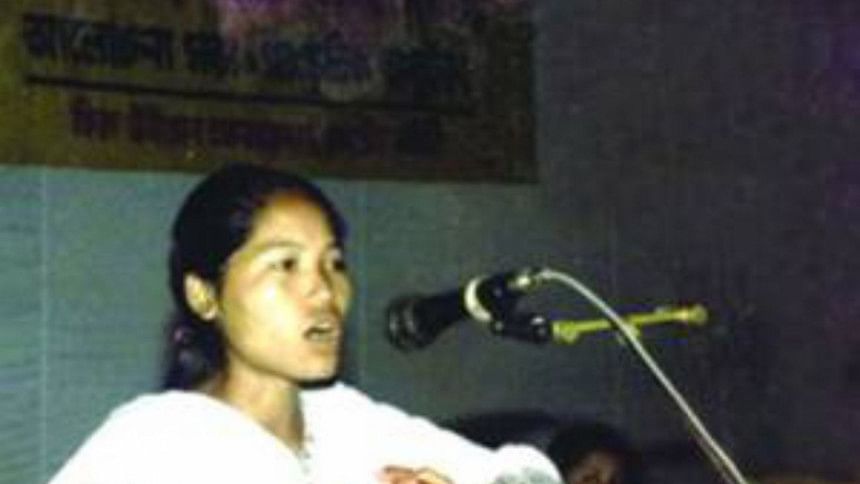Impunity and the Kalpana Chakma case

I first heard about the alleged abduction of Kalpana Chakma just after the incident occurred in June 1996. I was teaching at Dhaka University at that time. My first response was to get a broad spectrum of teachers to sign a petition demanding a proper investigation. This I managed to do. By that time the people had elected a Government where the Awami League held the majority and there was hope that justice would see the light of day! I too went with hope in my heart to several newspaper offices with my petition expecting to see it printed in the next day's papers. We were after all promised press freedom with a new founded democracy! But then came the rude shock, in fact the first of many. No news of such petition appeared.
As it became evident that the general populace was mostly unaware about the situation in the Hills, a few concerned Bengali teachers and lawyers joined hands with the Hill Women's Federation and Pahari Chhatra Parishad along with different political alliances. We decided to hand over a petition to the Speaker of the newly constituted Parliament. As we started our march to the Parliament, we were duly stopped by the police at Bangla Motor. When we insisted that some representatives should be allowed to present our petition to the Speaker, we were told that they did not have any suitable vehicle which could accommodate so many of us (we were about six or seven). What was available was the police van (which was brought in case of arrests). We said we did not mind and before they could take back the offer, several of us jumped on board, led by the Late Barrister Shahjahan.
Six women police women also joined us, presumably to keep guard over us. Upon reaching the Parliament when we learnt that the Speaker was busy in a meeting, we met with the then Deputy Speaker Advocate Abdul Hamid (currently the president of Bangladesh). It was an amicable meeting as Advocate Hamid listened to us patiently and agreed with us on many things. Although our prime aim was to focus on seeking justice for Kalpana Chakma, we also addressed the overall situation of the Chittagong Hill Tracts and the need for demilitarisation. We insisted on a political solution to the problem and were assured that our proposals would be discussed at the highest level. In the following year, on December 1997, when the CHT Accord was signed, we like everyone else thought that justice for Kalpana Chakma will soon follow.
The media in the meantime had come out of the woodworks as they projected the struggles in relation to the Kalpana case, but alas just like the unimplemented clauses of the accord, the Kalpana Chakma case took the political back bench. So when in 2012, the new Awami League government reopened the case, people seeking justice saw a renewed hope.
Now 19 years after the incident and three years after the re-opening of the court proceedings, our hopes are once again being dashed against the bedrock of impunity that seems to affect our political system as well as inflict our democratic institutions with a quiet and sickening silence. As per reports in the media, impunity in the Kalpana Chakma case is not only reflected in the non-punishment of those responsible as there seems to be no named persons in the original FIR, but also in not treating the "disappearance" as an enforced or involuntary departure. According to the UN Mandate on Enforced and Involuntary Disappearance, an enforced disappearance is defined by three cumulative elements:
(1) Deprivation of liberty against the will of the person
(2) Involvement of government officials, at least by acquiescence
(3) Refusal to acknowledge the deprivation of liberty or concealment of the fate or whereabouts of the disappeared person
The latitude of this definition has made it possible for many complex and complicated cases of disappearances to be addressed in a successful way in the Balkans, Turkey, Peru, Sri Lanka and many other countries of the world. Why can't the same be said about Kalpana Chakma's case? Our belief that justice will be served is what keeps the flicker of hope alive in us.
The writer is researcher and former Professor of International Relations, Dhaka University.

 For all latest news, follow The Daily Star's Google News channel.
For all latest news, follow The Daily Star's Google News channel. 



Comments